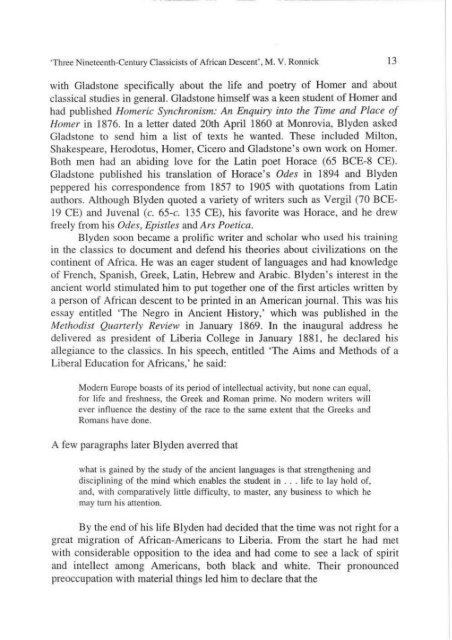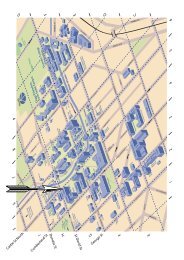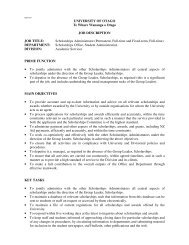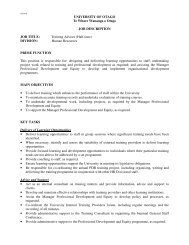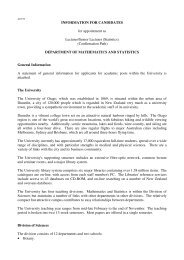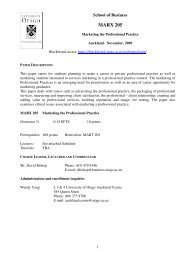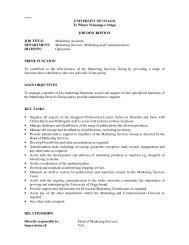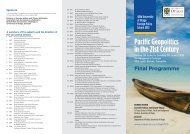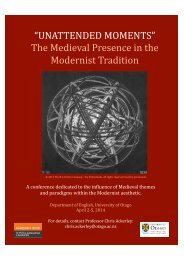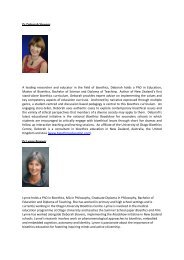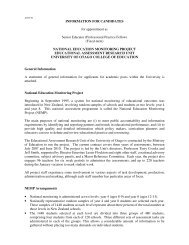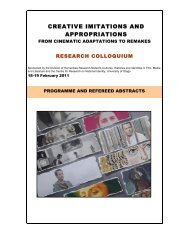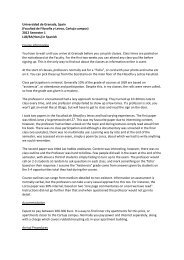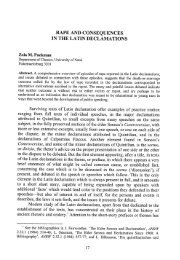scholia - University of Otago
scholia - University of Otago
scholia - University of Otago
You also want an ePaper? Increase the reach of your titles
YUMPU automatically turns print PDFs into web optimized ePapers that Google loves.
'Three Nineteenth-Century Classicists <strong>of</strong> African Descent', M. V. Ronnick<br />
with Gladstone specifically about the life and poetry <strong>of</strong> Homer and about<br />
classical studies in general. Gladstone himself was a keen student <strong>of</strong> Homer and<br />
had published Homeric Synchronism: An Enquiry into the Time and Place <strong>of</strong><br />
Homer in 1876. In a letter dated 20th April 1860 at Monrovia, Blyden asked<br />
Gladstone to send him a list <strong>of</strong> texts he wanted. These included Milton,<br />
Shakespeare, Herodotus, Homer, Cicero and Gladstone's own work on Homer.<br />
Both men had an abiding love for the Latin poet Horace (65 BCE-8 CE).<br />
Gladstone published his translation <strong>of</strong> Horace's Odes in 1894 and Blyden<br />
peppered his correspondence from 1857 to 1905 with quotations from Latin<br />
authors. Although Blyden quoted a variety <strong>of</strong> writers such as Vergil (70 BCE-<br />
19 CE) and Juvenal (c. 65-c. 135 CE), his favorite was Horace, and he drew<br />
freely from his Odes, Epistles and Ars Poetica.<br />
Blyden soon became a prolific writer and scholar who used hi s training<br />
in the classics to document and defend his theories about civilizations on the<br />
continent <strong>of</strong> Africa. He was an eager student <strong>of</strong> languages and had knowledge<br />
<strong>of</strong> French, Spanish, Greek, Latin, Hebrew and Arabic. Blyden's interest in the<br />
ancient world stimulated him to put together one <strong>of</strong> the fust articles written by<br />
a person <strong>of</strong> African descent to be printed in an American journal. This was his<br />
essay entitled 'The Negro in Ancient History,' which was published in the<br />
Methodist Quarterly Review in January 1869. In the inaugural address he<br />
delivered as president <strong>of</strong> Liberia College in January 1881, he declared his<br />
allegiance to the classics. In his speech, entitled 'The Aims and Methods <strong>of</strong> a<br />
Liberal Education for Africans,' he said:<br />
Modern Europe boasts <strong>of</strong> its period <strong>of</strong> intellectual activity, but none can equal,<br />
for li fe and freshness, the Greek and Roman prime. No modem writers will<br />
ever influence the destiny <strong>of</strong> the race to the same extent that the Greeks and<br />
Romans have done.<br />
A few paragraphs later Blyden averred that<br />
what is gained by the study <strong>of</strong> the ancient languages is that strengthening and<br />
disciplining <strong>of</strong> the mind which enables the student in . . . life to lay hold <strong>of</strong>,<br />
and, with comparatively little difficulty, to master, any business to which he<br />
may turn his attention.<br />
By the end <strong>of</strong> his life Blyden had decided that the time was not right for a<br />
great migration <strong>of</strong> African-Americans to Liberia. From the start he had met<br />
with considerable opposition to the idea and had come to see a lack <strong>of</strong> spirit<br />
and intellect among Americans, both black and white. Their pronounced<br />
preoccupation with material things led him to declare that the<br />
13


